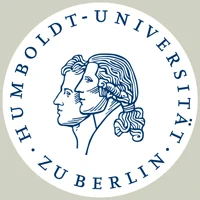Humboldt-Universität zu Berlin
Germany | Berlin, Germany

Germany | Berlin, Germany


The University of Berlin, established in 1810, is recognized as the "Mother of all modern universities," a title reflecting its foundational concept devised by Wilhelm von Humboldt. His vision aimed at creating a "Universitas litterarum," which emphasized the integration of teaching and research while offering students a comprehensive humanist education. This model quickly spread worldwide, inspiring the establishment of similar universities over the next century and a half. Humboldt's educational philosophy, influenced by reformists like Johann Gottlieb Fichte and Friedrich Schleiermacher, laid the foundation for a transformative academic environment.
From its inception, the university featured the core faculties of Law, Medicine, Philosophy, and Theology. Its inaugural academic term began with 256 students and 52 professors, such as Georg Wilhelm Friedrich Hegel in Philosophy and Karl Friedrich von Savigny in Law, who helped shape the institution's intellectual direction. The university was instrumental in advancing new fields, largely due to the influence of natural scientist Alexander von Humboldt, and produced groundbreaking work in multiple disciplines.
Renowned scientists like Hermann von Helmholtz, August Wilhelm von Hofmann, and Nobel laureates including Albert Einstein and Max Planck, made significant contributions during their tenure at the university. The university's legacy also includes iconic figures such as Karl Marx, Otto von Bismarck, and Heinrich Heine, who studied or received honorary degrees here, further solidifying its position as a cornerstone of modern academic and intellectual achievement.
For 2025, Humboldt-Universität zu Berlin is ranked 126th in the QS World University Rankings, a slight drop from 120th the previous year. In Germany, it holds the 7th spot, maintaining its prominent position among the country's leading universities. In the Times Higher Education World University Rankings 2025, Humboldt University ranks 84th globally, improving from 87th the previous year. It is also 4th in Germany, underscoring its continued excellence in research and academic reputation
No courses available for this university.